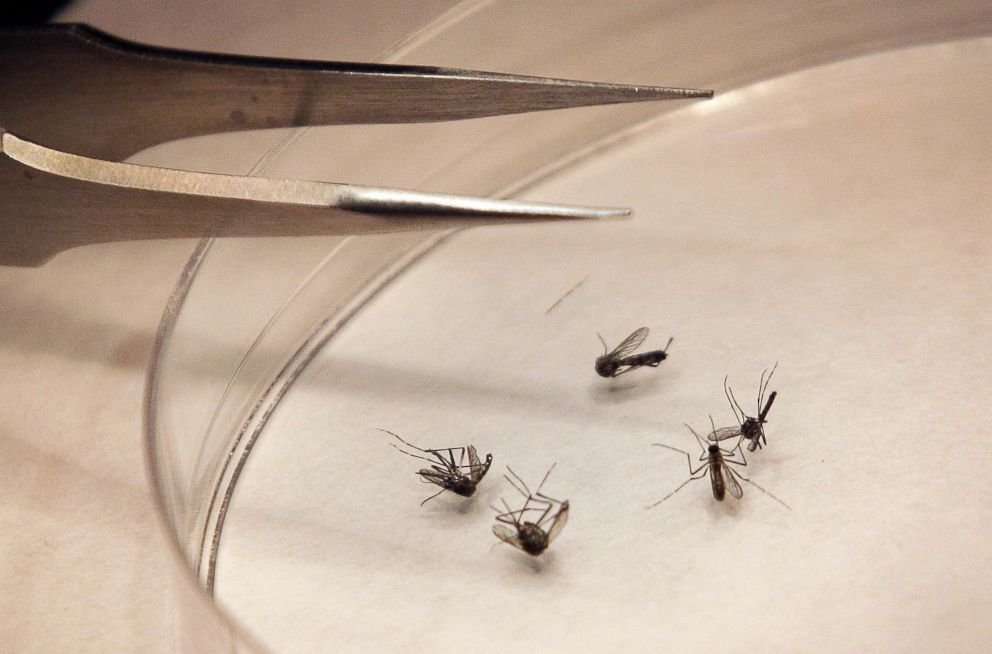Midland County Mosquito Data Shows All-Time High West Nile Cases in 2025

Rising West Nile Virus Cases in Midland County
As of July 31, Midland County has reported a significant increase in West Nile Virus cases among tested mosquitoes for the year 2025. The number of cases has tripled the average yearly count, with 13 positive tests recorded so far. While no human cases have been reported in Michigan this year, health officials are warning residents about the potential risk of mosquito bites.
West Nile Virus is typically spread between birds and mosquitoes, but once a mosquito becomes infected, it can transmit the virus to other mammals, including humans. Although most people who contract the virus show no symptoms, approximately 20% experience mild symptoms such as fever and headache, while 1% may face life-threatening complications.
Midland County usually sees up to four cases of West Nile Virus in mosquitoes during a typical season. However, the current level of positive tests for 2025 is unusually high, according to Midland County Mosquito Control. This trend is not isolated to Midland; the virus is being observed across a broader region, including Minnesota, Illinois, and Michigan.
Carl Doud, the director of Midland County Mosquito Control, shared that he recently spoke with colleagues in Minnesota and the Chicago area, who also reported increased activity of the virus. “It's not anything particular to Midland County,” Doud said. “It seems to be occurring through the region.”
To better understand the situation, mosquito control agencies are planning to participate in a discussion hosted by the University of Wisconsin. This will allow them to compare data and share insights on how the virus is spreading.
Monitoring and Testing Procedures
Mosquito control teams monitor the virus by collecting samples using various traps. One of these is the gravitrap, which uses stink water to attract mosquitoes after they have fed on blood. Once attracted, the trap captures the insects, allowing them to be sent to the lab for testing.
The laboratory plays a crucial role in identifying the species of mosquitoes and birds that may carry the virus. Doug Allen, a biologist in charge of the lab, explained that not all species carry the same diseases. Therefore, accurate sorting is essential for effective testing.
Allen also handles the testing of birds that may be infected with the virus. He responds to reports of dead birds found near trees, as they could be potential carriers. “We're testing birds or mosquitoes that feed on birds, yet people get sick throughout the state,” Allen said. “It’s kind of a strange thing that I might catch 500 of these mosquitoes in a trap some night and you’re out there, you’re not getting bit. It’s because they don’t like people. They prefer birds.”
Preventing Mosquito Bites
Despite the lack of full understanding about how the virus spreads, experts emphasize that the best way to avoid infection is to prevent mosquito bites. Midland County Mosquito Control continues to conduct nighttime fogging to reduce adult mosquito populations. However, individuals can take additional steps to protect themselves:
- Use insect repellent containing DEET, picaridin, or oil of lemon eucalyptus.
- Wear long sleeves and pants when outdoors, especially during peak mosquito hours.
- Avoid being outside from dusk to dawn, when mosquitoes are most active.
- Ensure window screens are intact to prevent mosquitoes from entering homes.
No Treatment or Vaccine Available
Currently, there is no treatment or vaccine available for West Nile Virus in humans. The only existing vaccine is for horses, highlighting the importance of prevention measures for the general population. As the virus continues to circulate, staying informed and taking protective actions remain critical in reducing the risk of infection.
Post a Comment for "Midland County Mosquito Data Shows All-Time High West Nile Cases in 2025"
Post a Comment